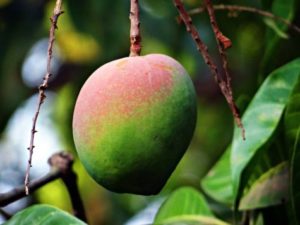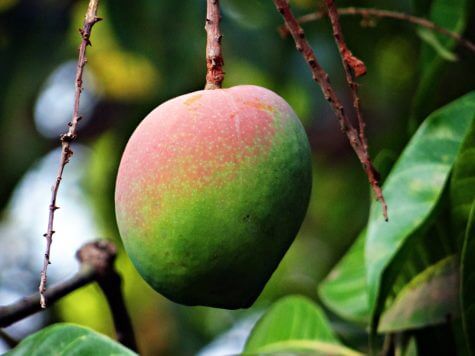ORLANDO, Fla. — Find yourself frequently battling constipation, but don’t have the tastebuds for prunes? Turns out there may be a sweeter, juicer solution available at your local produce market: mangoes.
A pilot study conducted by researchers at Texas A&M University found that eating mangoes helps relieve constipation better when compared to taking a supplement containing similar amounts of fiber. Mangoes contain both fiber and polyphenols, promote gut health and help reduce intestinal inflammation.

The study — which was funded in part by the National Mango Board — involved thirty-six adult men and women with chronic constipation who were split into two groups. One group ate approximately 300 grams of mango — about two cups of the front, or one whole mango — per day over four weeks, while the other was given a supplement containing an equivalent amount of fiber (about 5 grams of dietary psyllium fiber) that participants simply added to their regular diets. Each participant, no matter the group, consumed equivalent amounts of calories, carbohydrates, fiber, protein and fat.
While participants found their constipation problems lessened, the mango group showed the fruit to be more effective in reducing symptoms and putting an end to the painful condition altogether. Specifically, it helped stools to return to regular consistency, shape, and at normal frequency for the participants. Mangoes also helped reduce biomarkers of inflammation.
“Our findings suggest that mango offers an advantage over fiber supplements because of the bioactive polyphenols contained in mangos that helped reduce markers of inflammation and change the make-up of the microbiome, which includes trillions of bacteria and other microbes living in our digestive track,” says Susanne U. Mertens-Talcott, associate professor of nutrition and food science at Texas A & M University, in a statement. “Fiber supplements and laxatives may aid in the treatment of constipation, but they may not fully address all symptoms, such as intestinal inflammation.”
The researchers say that more work is needed to figure out more specifically how mangoes play such a significant role in preventing constipation. One cup of mango contains 100 calories, 100% of daily vitamin C, 35% of daily vitamin A, 12% of daily fiber, according to the National Mango Board.
It’s estimated that 1 in 5 Americans suffer from chronic constipation.
The full study was published May 7, 2018 in the journal Molecular Nutrition and Food Research.
